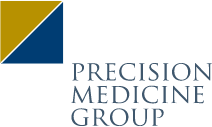The entertainment industry has a long history of producing healthcare-centered stories, with myriad TV shows and movies set in hospitals and chronicling the lives of (usually unfairly good-looking) doctors and nurses. In recent years, however, that focus has shifted to another area of healthcare: the pharma and biotech sector.
In the past three years, documentaries have analyzed the rise and fall of Elizabeth Holmes and Theranos, the role Purdue Pharma allegedly played in fueling the opioid epidemic, and the legal saga of “Pharma Bro” Martin Shkreli.
Additionally, Hulu has aired two limited series focusing on the pharma industry. Dopesick starred Michael Keaton as a doctor in a small Appalachian town mired in the opioid epidemic, while The Dropout cast Amanda Seyfried as Holmes. Hollywood might not be done with Theranos yet: Oscar-winner Jennifer Lawrence is reportedlyset to star as Holmes in a film about the blood-testing startup’s collapse.
With all of the external interest, it’s fair to ask what the industry itself makes of this moment in the spotlight – and whether there are opportunities to shift the narrative away from controversy.
According to the 2022 Global RepTrak 100 report, the pharmaceutical industry’s reputation is at a tenuous point once again. 2021 saw the industry transform itself from dastardly price hikers into international saviors in the wake of the speedy production of COVID-19 vaccines.
However, wildly divergent public opinions about the efficacy of the shots and subsequent government mandates scuttled the reputational gains. Meanwhile, the Global RepTrak report noted that consumers have not forgotten about the effects of the opioid epidemic and rising prescription drug prices.

Michael Keaton in Dopesick, 2021.
The documentaries and limited series about pharma may have appeal for another reason: They are just as much about cultural crises as healthcare ones, according to Ankit Vahia, chief strategy officer, health and wellness at Grey Group.
Vahia believes these documentaries and TV shows intrigue viewers because they serve as exposés of greed and crime in the healthcare space. This, in turn, piques patient interest about drug development, sales and marketing techniques.
“We’ve seen during COVID that people are more willing to ask questions and demand answers than ever before,” Vahia explained. “That’s a good thing, because I think patients should take more ownership over their health.”
Going forward, Vahia sees an opportunity for healthcare marketers to engage in patient-facing marketing that is more effective in the wake of all the interest — namely, because it understands what consumers know about the industry and what interests them about it.
“We always talk about patient empowerment, but empowerment comes from education,” Vahia said. “There’s an opportunity to actually do that in a manner that’s authentic and true. What people want is to know the details, which is great.”
Precisioneffect president Carolyn Morgan believes that shows like Dopesick and The Dropout open eyes owing to their depictions of brazen behavior in and around healthcare. However, she said that marketers should seize the moment and use it to highlight all the good, in terms of research, treatments and vaccines, that the industry has contributed to the world.
Morgan noted that the pharmaceutical industry has advanced science to a point where HIV can be treated as a chronic condition and some rare diseases or cancers are no longer a death sentence.
“You’re seeing a lot of companies leverage R&D investment and use these opportunities as a way to ask, ‘How do we remind people of the positive nature of what it is that we do?’ she added.
Despite the opening to craft an optimistic narrative, Morgan cautions that there remains lasting reputational damage caused by bad actors like Holmes. She said that while there are accomplished biotech companies in the diagnostic space, many have been dragged down in Holmes’ wake — and the same holds for women leaders in the sector.
“It’s hard for women to raise money, it’s hard for women to be in the C-suite and it’s hard for women to be on boards in this industry,” Morgan said. “It’s just another black mark we have to work that much harder to overcome.”












The entertainment industry has a long history of producing healthcare-centered stories, with myriad TV shows and movies set in hospitals and chronicling the lives of (usually unfairly good-looking) doctors and nurses. In recent years, however, that focus has shifted to another area of healthcare: the pharma and biotech sector.
In the past three years, documentaries have analyzed the rise and fall of Elizabeth Holmes and Theranos, the role Purdue Pharma allegedly played in fueling the opioid epidemic, and the legal saga of “Pharma Bro” Martin Shkreli.
Additionally, Hulu has aired two limited series focusing on the pharma industry. Dopesick starred Michael Keaton as a doctor in a small Appalachian town mired in the opioid epidemic, while The Dropout cast Amanda Seyfried as Holmes. Hollywood might not be done with Theranos yet: Oscar-winner Jennifer Lawrence is reportedlyset to star as Holmes in a film about the blood-testing startup’s collapse.
With all of the external interest, it’s fair to ask what the industry itself makes of this moment in the spotlight – and whether there are opportunities to shift the narrative away from controversy.
According to the 2022 Global RepTrak 100 report, the pharmaceutical industry’s reputation is at a tenuous point once again. 2021 saw the industry transform itself from dastardly price hikers into international saviors in the wake of the speedy production of COVID-19 vaccines.
However, wildly divergent public opinions about the efficacy of the shots and subsequent government mandates scuttled the reputational gains. Meanwhile, the Global RepTrak report noted that consumers have not forgotten about the effects of the opioid epidemic and rising prescription drug prices.
Michael Keaton in Dopesick, 2021.
The documentaries and limited series about pharma may have appeal for another reason: They are just as much about cultural crises as healthcare ones, according to Ankit Vahia, chief strategy officer, health and wellness at Grey Group.
Vahia believes these documentaries and TV shows intrigue viewers because they serve as exposés of greed and crime in the healthcare space. This, in turn, piques patient interest about drug development, sales and marketing techniques.
“We’ve seen during COVID that people are more willing to ask questions and demand answers than ever before,” Vahia explained. “That’s a good thing, because I think patients should take more ownership over their health.”
Going forward, Vahia sees an opportunity for healthcare marketers to engage in patient-facing marketing that is more effective in the wake of all the interest — namely, because it understands what consumers know about the industry and what interests them about it.
“We always talk about patient empowerment, but empowerment comes from education,” Vahia said. “There’s an opportunity to actually do that in a manner that’s authentic and true. What people want is to know the details, which is great.”
Precisioneffect president Carolyn Morgan believes that shows like Dopesick and The Dropout open eyes owing to their depictions of brazen behavior in and around healthcare. However, she said that marketers should seize the moment and use it to highlight all the good, in terms of research, treatments and vaccines, that the industry has contributed to the world.
Morgan noted that the pharmaceutical industry has advanced science to a point where HIV can be treated as a chronic condition and some rare diseases or cancers are no longer a death sentence.
“You’re seeing a lot of companies leverage R&D investment and use these opportunities as a way to ask, ‘How do we remind people of the positive nature of what it is that we do?’ she added.
Despite the opening to craft an optimistic narrative, Morgan cautions that there remains lasting reputational damage caused by bad actors like Holmes. She said that while there are accomplished biotech companies in the diagnostic space, many have been dragged down in Holmes’ wake — and the same holds for women leaders in the sector.
“It’s hard for women to raise money, it’s hard for women to be in the C-suite and it’s hard for women to be on boards in this industry,” Morgan said. “It’s just another black mark we have to work that much harder to overcome.”